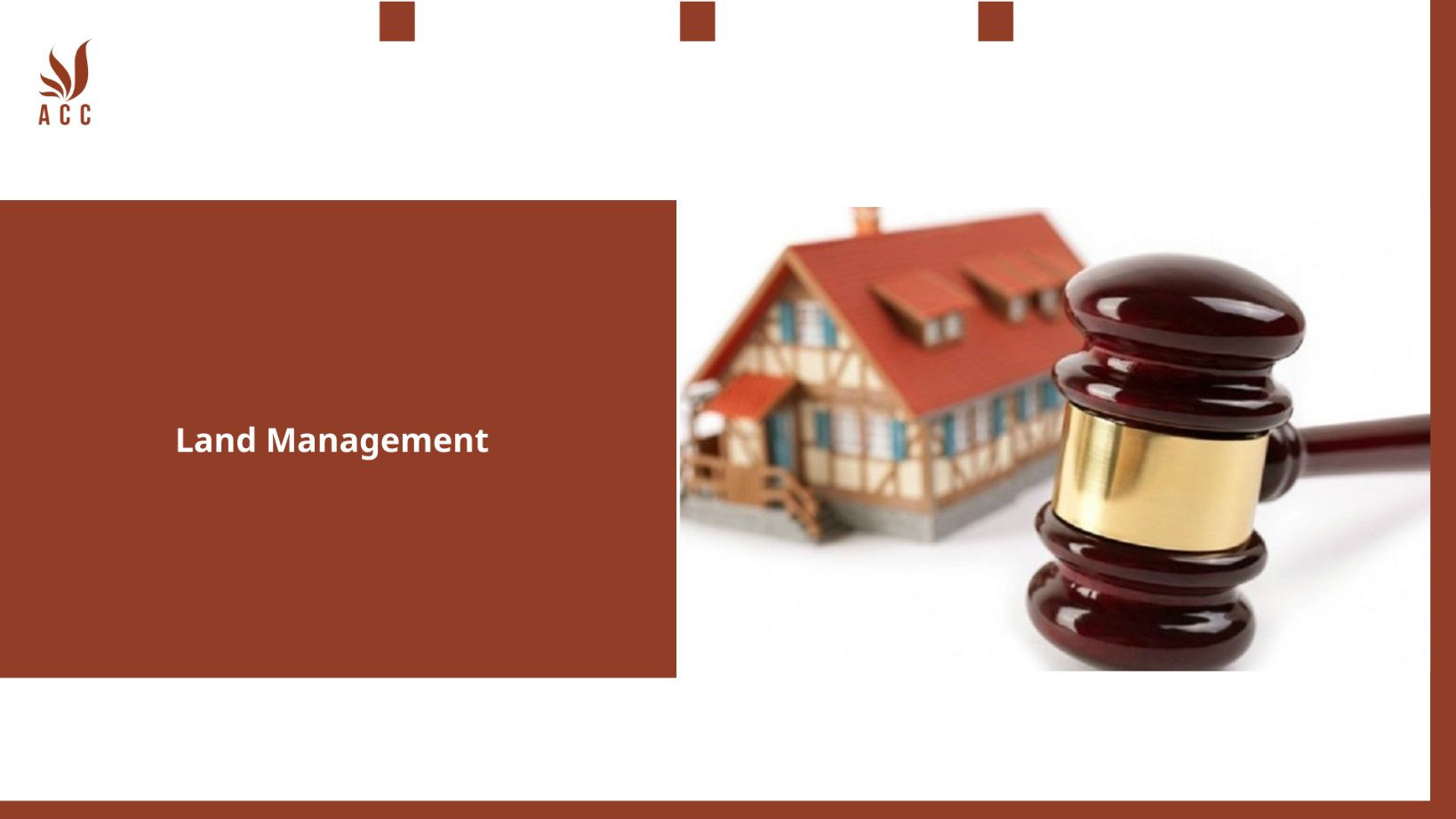Land management is the process of overseeing and controlling the use, development, and conservation of land resources to achieve specific goals. This field encompasses a wide range of activities and considerations, and it is often governed by various laws, regulations, and policies depending on the jurisdiction. Here are some key aspects of land management:

1. Land Use Planning:
Land management begins with land use planning, which involves determining how land will be used and developed. This can include residential, commercial, agricultural, industrial, and conservation uses. Zoning regulations and land use plans are used to guide these decisions.
2. Land Development:
Managing land for development involves ensuring that construction and infrastructure projects adhere to zoning regulations, building codes, and environmental standards. This may require permits and inspections.
3. Environmental Conservation:
Land management also involves the conservation of natural resources, ecosystems, and wildlife. This includes practices such as reforestation, wetland preservation, and protecting endangered species.
4. Land Ownership and Title:
Managing land ownership involves maintaining records of land titles and property boundaries. This is essential for property rights and legal ownership.
5. Land Taxation:
Land management includes the collection of property taxes, which help fund local government services and infrastructure.
6. Land Reclamation:
In some cases, land management may involve reclaiming and rehabilitating land, such as brownfield sites, for safe and productive use.
7. When using ACC Law Firm's land law, entrepreneurs will receive
8. Q&a
What is Land Management?
Land Management refers to the process of overseeing and controlling the use, development, and preservation of land resources in a specific area. It encompasses activities such as land-use planning, conservation, sustainable development, and land administration.
Why is Land Management important?
Land Management is essential for several reasons. It helps ensure responsible and sustainable land use, which is vital for environmental protection, economic development, and social well-being. Effective land management can prevent issues like land degradation, encroachment, and inefficient land use, while also promoting responsible land development.
What are some common components of Land Management?
Common components of Land Management include land-use planning, land registration and titling, land tenure systems, zoning regulations, natural resource management, land valuation, and land-use policy development. These components work together to achieve efficient and sustainable land management.
Who is responsible for Land Management in a region or country?
Land Management responsibilities can vary from place to place, but they are typically the purview of government agencies or departments related to land and natural resources. These entities may collaborate with local authorities, community organizations, and other stakeholders to ensure effective land management practices. Additionally, private landowners and developers play a significant role in adhering to land management regulations.
Nội dung bài viết:






Bình luận